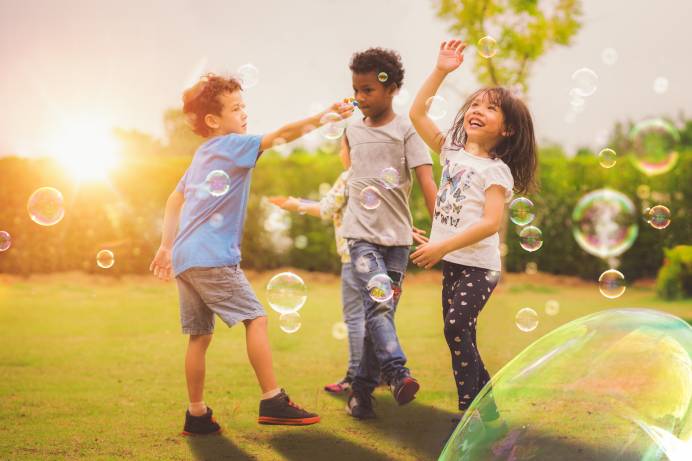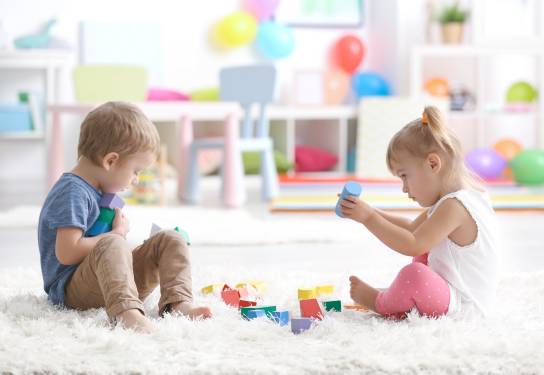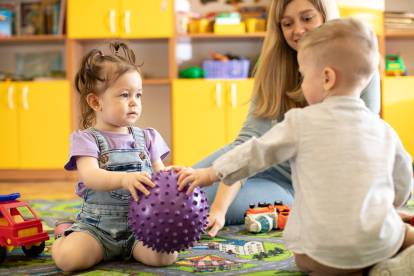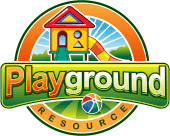
Playing is not just a fun way for children to pass time, it is also an opportunity for them to learn about their surroundings, other people and more importantly- themselves.
Sure children discover things by playing alone, but social play allows them to interact, collaborate, solve more complex problems, take turns, compromise, and address conflicts.
Hence, parents must realize that playdates play a vital role in the development of their children.
Table of Contents
What are the Benefits of Playdates?
What are the benefits of Play Dates? Aside from the physical benefits, playdates help toddlers and older kids to develop and grow vital skills such as social, problem-solving, and critical thinking while also presenting many new learning opportunities.
Playdates allow children to communicate, learn to share, learn about teamwork, and much more. Let’s take a closer look.
Social Interaction
Simply said, social interaction is how children (and adults) act and react to people around them. Social interaction starts a relationship between two or more persons.
Such interactions may consist of talking with, playing together, sharing thoughts, and other actions. It is among one the most essential developmental skills that will benefit them for the rest of their lives.
At an early age, it benefits children to engage with other children because it improves their language and communication skills, self-confidence, creativity, and understanding.
Problem Solving
The ability to solve problems is a crucial survival skill for youngsters. It’s necessary so they can resolve day to day conflicts. If they learn how to solve personal issues, then they gradually build self-confidence and develop a clever mind as well as a vibrant personality.
A child who can solve his or her problems is more likely to perform well in school and get higher grades. Kids who learn how to successfully solve common problems can look forward to succeeding in their adult years.
An important fact that children should know about problem-solving is this – It’s not difficult to act, but the capacity to withstand a tough situation with readiness and smart mind takes skill, and it’s a learned skill. Playdates present many opportunities for this.
Learning Opportunities

During playdates, the excited children will discover new things they like and are interested in as well as experiencing new situations.
Each of these is a new learning opportunity for children and parents must give their kids the chance to try and explore these new things.
Children seldom need encouragement to learn more about the world around them -it comes naturally- but putting them in a situation that promotes exploration and learning is key for developmental growth.
One of the great opportunities a playdate presents for your child is the chance to intermingle with another youngster in a relaxed informal setting that is conducive to play (learning).
Playdates are Fun
Playdates, besides presenting new opportunities for development and learning are just plain fun. They promise the prospect of meeting new friends, playing with new toys, and learning new things.
It’s an exciting event for children that will be remembered and will have them looking forward to the next one.
Gain Independence
Children who participate in playdate activities learn to become more independent at an earlier age. This is not only crucial for development but will benefit them greatly in later years.
They are given options on activities to do with their playmate(s) or toys to play with and can decide for themselves. In other words, the kid can think freely and make some decisions on their own, which not only teaches and develops independence but also teamwork.
Your child gets to be courageous enough to make his or her own judgments, and while they will still look to you and need your guidance, this a great opportunity for them to grow and develop.
New Experiences
Playdates lead to newer and better (sometimes worse, but still new) experiences. During the playdate, the child may go to another home and it’s a great opportunity for them to experience new environments with other people and be exposed to different ways of doing things.
It’ll be advantageous for your child to see how another family performs its household tasks and how they act, so your little one learns to adjust in new situations and environments.
They will be more likely to get along will other children and handle new situations with ease.
New, Different Toys to Play With
The other child or children may bring their own toys along with them to the playdate and this can be especially exciting for your little one. It could be a brand-new board game, building blocks, play dough, or stuffed animal.
It also presents the opportunity for the children to “show off” the toys or projects they like and are interested in. This can help to foster the virtue of generosity and teach them the importance of sharing.
I have some really fun toy and activity ideas for playdates, so be sure to check out these articles. “Playdate Ideas for Kids 8-12 Years Old – Guaranteed Fun” and “Playdate Ideas for Babies – Development is Fun for Babies“.
Emotional Growth
A child should know the art of receiving and displaying affection. This is a learned behavior. Putting your child in situations for positive emotional growth will benefit them for the rest of their lives.
By going on playdates, your child has the chance to nurture relationships with other children.
Expect the children to show different emotions like getting shy when meeting new playmates, getting angry while playing and sad when it’s time to leave for home.
Just allow them to go through these emotions because it’s a part of the process of shaping positive and healthy emotional growth.
Learn About Teamwork
Playdates will help your child to discover the importance and sometimes necessity of teamwork. A team player knows how to respect the opinions of other persons and is more patient and pleasant to deal with.
They’ll understand how to interact with others and empathize with playmates. One who knows and understands the importance of teamwork is more willing to cooperate, listen to colleagues (playmates for now) and can voice out their thoughts without being rude.
This learned skill will benefit them greatly for the rest of their lives.
Trusting
Your child will learn about trust by introducing him or her to new children (strangers). This learned skill will help them determine many necessary things –both positive and negative– and aid in their judgment with all future social and life situations.
Trust, and being able to properly give and receive trust is one of the most important skills for leadership and can have a huge impact on their future self.
Learning to develop positive trust for others and being able to identify when you shouldn’t trust someone is a crucial (and sometimes hard) skill your child must learn.
Learn to Share

Your child will learn many vital lessons in life by being involved in playdates. One of these lessons is the value of sharing. Sharing toys will not only help children to become more thoughtful and caring but also helps to build trust.
When just starting, children may find it hard (trying for parents) to share. Sharing is also a learned skill that like any other skill takes time and patience to develop. There may be tears and a few temper tantrums, but just remember to be patient- this can take some time but it will pay off.
You can help the learning process go smoother by talking to your child beforehand and explaining to them that their playmates may want to play with their toys- and they may want to play with their playmate’s toys too. It’s a win-win situation for them.
They may not see the importance of sharing now, but they will soon see the benefits and this life skill will benefit them for the rest of their lives.
Tips for a Successful Playdate
Now that you know the benefits of playdates, we can move on to some pointers to better ensure a successful playdate.
Set a Time Limit
Unless it’s a sleepover, then it’s a good idea to set a time limit. If you’re hosting, there has to be a fixed start and finish for your play date. This will not only help with the success of the playdate but will also help to avoid conflict.
The ideal time is one to three hours, but depending on the age of the children you can extend this as you see fit. The point here is to be flexible and make the necessary adjustments to accommodate meals and naps for those who come.
Play Just One Activity
Having just one structured activity planned is a good idea, because kids may start to play on their own.
It’s great if they stick with the planned activity, but that oftentimes this isn’t the case, and it’s best to allow free play.
Just be sure to have plenty of “backup” toys available.
Talk to Your Child Beforehand
Tell your child other children are coming to play with them. And if there are any toys he or she may not want to share (at the moment), they can put it away and keep it a secret. But limit it to one toy, and maybe hint that in the future they may have to share it, but for now they can put it away.
Putting that toy away can not only avoid conflict but will also help to make the learning process of sharing easier. Also, it will benefit to tell them that their playmates may have brought their favorite toy along and to treat it like they would want their favorite toy to be treated. It’s all a learning process, patience is key.
You can put that special toy away for now to avoid conflicts. Another way to make your child less nervous and more comfortable with the idea of having playmates over is to get them involved. Ask them what activities or toys they’d like to play with their playmates and what snacks they’d like.
Setup Different Stations
Set up different stations, such as one station for coloring, one for playing with toys, and a snack and nap station.
This will help to maintain some order, avoid conflict and make all your guests more comfortable.
You don’t need a huge room to do this, it can definitely be done in a small room, just let the children know that if they want to color they do it “here” and if they want to play with Legos, they do it “there”, etc.
This would also a good opportunity to establish some additional ground rules. Let’s talk about that next.
Set the Rules, Gently
Establish the do’s and don’ts- like no hitting of other kids, don’t leave the place without permission, and taking care of toys and furniture.
Inform the children about your rules at the start of the playdate and announce the rules calmly, but firmly without offending or frightening the players.
An effective but kind way to reprimand a naughty rule-breaker is to “blame it on the house rules”. For example, “In this house we don’t hit when we’re angry”, or “In this house we share”. This is a great way to enforce necessary rules without coming across as a meanie.
Final Thoughts and Considerations
A playdate allows your child to have clean fun with playmates in a safe and orderly environment. Moreover, it’s an important learning and growing opportunity. Playdates are also an opportunity for parents to observe how their children interact with peers. The critical skills they will develop are learned, and your child will need the proper guidance.
Playdates can also be especially beneficial for shy kids. It’s not easy for them to get out of their comfort zone of playing alone or with just their siblings, but it will pay off in the long run.
There may be some shouting, tears, running around and shoving but that’s all part of the game. In the meantime, sit back and enjoy the moment, and no matter how hectic it may get, remember to stay safe and have fun.

Yohana
Over 14 years in special education with a BA in psychology. I work daily with children of all kinds, with a special focus on childhood development and play using music and play equipment among other tools.

